Dear all,
On November 25 the submission for the ECC 2021 closed and we have over 600 papers. Considering the circumstances we are very happy with this number! Submission for workshops & tutorial sessions remains open until December 21.
Many people have been wondering about the Benelux Meeting. In 2021 the organization is in the hands of our Belgian colleagues and understandably they have decided not to organize a physical meeting in March. Perhaps an alternative (online) activity will be offered, but that is yet to be decided.
With best regards,
Henk Nijmeijer,
scientific director
Martha Otte,
DISC secretariat
In 2020 we had to cancel the DISC Summer School “Planning, Learning and Control for Multi-Robot and Multi-Agent Systems”. In 2021 we will offer this Summer School online!
The organisers, Javier Alonso-Mora (TUD) and Ming Cao (RUG), together with Omur Arslan (TU/e) are adapting the program to an online format. We will keep you updated!
In November the following course started:
Input Design and Parameter Estimation for Non-Linear Systems ONLINE (November 16 until December 7, 2020)
H. Stigter
K. Keesman
In January the following courses will start:
Mathematical Models of Systems
J. Polderman
H. Trentelman
S. Trenn
Nonlinear Control Systems
B. Jayawardhana
B. Besselink
For the full list of courses offered in 2020-2021 click here
European Control Conference 2021 (https://ecc21.euca-ecc.org/)
June 29-July 2, 2021
Rotterdam, The Netherlands
Submission deadlines
November 25, 2020 (papers, invited session proposals and invited papers)
December 21, 2020 (workshop proposals & tutorial sessions)
January 30, 2021 (extended abstracts)
In 2021 we will organise the first ever HYBRID ECC! You can join the conference either virtually or in person in Rotterdam. Either way, we promise you a state-of-the art, high quality and engaging (online) conference. We are proud to announce the following plenary speakers:
General chair
Henk Nijmeijer (Eindhoven University of Technology)
IPC-Chairs
Jacquelien Scherpen (University of Groningen)
Maurice Heemels (Eindhoven University of Technology)
NOC Chair
Hans Hellendoorn (Delft University of Technology)
ECC 2021 is organised in cooperation with: EUCA, IFAC and IEEE Control Systems Society
The accepted papers will be indexed and published on the IEEE Xplore digital library. We are also working towards a stronger link with the European Journal of Control for publication of selected papers of the conference.
We look forward to welcoming you to the ECC 2021!
The (extended) deadline for nominations for the European Control Award is 7 December. More information on the Award and the nomination process can be found here.
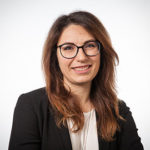 Laura Ferranti has been awarded a VENI grant. The title and abstract of the project are:
Laura Ferranti has been awarded a VENI grant. The title and abstract of the project are:
HARMONIA: Trustworthy Mobile Robotics
Imagine having automated cars, drones, boats, etc. in our cities equipped with an on-board technology that allows them to interact with each other near us without harming our safety, security, and privacy. With HARMONIA, I will devise this technology to enable Trustworthy Mobile Robotics in the real world.
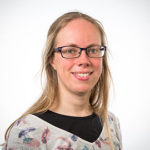 Manon Kok has been awarded a VENI grant on sensor methods for indoor localization.
Manon Kok has been awarded a VENI grant on sensor methods for indoor localization.
The title and abstract of the project are:
Widely available sensors help us find our way indoors
While GPS helps to find our way outdoors, there is not yet a generally available technology that does so indoors. This research develops a new methodology to use sensors that are available in any smartphone for three-dimensional positioning by combining measurements of our movement and of the magnetic field.

Sofie Haesaert has been awarded a VENI Grant.
Sofie is interested in the efficient and safe design of control systems. The increasing availability of computing power and sensors has led to the digitization of cars, planes and robots, among others. To enable long-term autonomy, these intelligent systems need to be able to adapt to physical changes safely. Using her Veni grant, she aims to investigate safe learning from sensor data for these systems.
Delft University of Technology
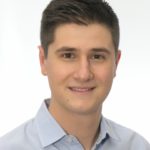 Name: Alberto Bertipaglia
Name: Alberto Bertipaglia
Starting date: 01-11-2020
Function: PhD
Group: CoR
Supervisor: Barys Shyrokau
I’m Alberto Bertipaglia, a new doctoral student supervised by Barys. During my PhD I will study automated vehicle control in edge cases using reconstructed wheel loads.
This year I graduated in Automotive Engineering at Politecnico di Torino (Italy) with a specialization in vehicle system development. During my study path I had some international experiences, the first one in Oxford for my Erasmus and the second one in Graz working for my thesis.
I love Cinema and listening to music. In the weekends, I like playing football with my friends and watching sport events on tv.
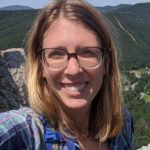 Name: Becca Fenton Friesen
Name: Becca Fenton Friesen
Starting date: 01-11-2020
Function: Postdoc
Group: CoR
Supervisor: Yasemin Vardar
I finished my doctorate in Mechanical Engineering at Northwestern University this summer. Over the course of my graduate work, I studied the underlying mechanisms of ultrasonic friction reduction for use in surface haptic displays, and used friction modulated displays to explore perceptually salient and scalable features of tactile texture. My interest in haptic technology began in my post-college job, where I worked as a technician in a neural engineering lab at Northwestern, developing direct neural control and proprioceptive feedback for prostheses.
At Delft, I’ll be working with Yasemin Vardar, exploring actuation and perception of wearable haptic cues delivered during active exploration of surfaces. While I left behind my piano and backyard vegetable garden upon moving to the Netherlands, I’m excited to spend more time biking around, trying new recipes, and finding new pandemic-allowed hobbies!
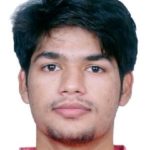 Name: Vishrut Jain
Name: Vishrut Jain
Starting date: 01-11-2020
Function: PhD
Group: CoR
Supervisor: Barys Shyrakau
I am Vishrut Jain, Born and brought up in India and have lived in Netherlands for the past 3 years. I come from a middle-class family who respects education and are accomplished in their respective fields.
I completed my master’s in Vehicle engineering from cognitive robotics in TU Delft, so from the same department. I worked on vehicle platooning for my Master’s thesis.
My PhD involves control techniques for path planning to reduce motion sickness using active suspension and motion cueing algorithms for reducing motion sickness in simulators. This would be combined with data driven techniques and validation. Supervisor for the Phd: Dr. Barys Shyrakau
My hobbies include playing tennis, occasional cooking, listening to music and Formula-1.
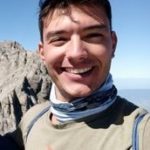 Name: Anastasios Tsolakis
Name: Anastasios Tsolakis
Starting date: 01-12-2020
Function: PhD
Group: CoR
Supervisor: Laura Ferranti
My name is Anastasios Tsolakis, but you can call me Tasos for short. I was born and raised in Patras, a city in Western Greece. I graduated from the Department of Mechanical Engineering of Aristotle University of Thessaloniki in 2018, obtaining a Diploma degree (combined B.Sc. and M.Sc.) with the specialization in “Design and Structures”. During my time there, I followed courses mainly focused on the analysis and design of dynamical systems and later I completed my thesis “The Effect of Power Distribution in Vehicle Dynamics” under the supervision of professor S. Natsiavas. After consolidating my decision to further specialize in dynamical systems, I joined the MSc program “Systems & Control” at TU Delft (September 2018). At the moment I am completing my thesis under the supervision of professor T. Keviczky entitled “Distributed IDA-PBC for Nonholonomic Systems”.
In December 2020, I will be joining the faculty of Cognitive Robotics as a PhD student under the supervision of professor Laura Ferranti. The research topic is “Safe Cooperation of Autonomous Vehicles in Mixed Traffic (SCooP)”. The goal of the SCoop project is to design a cooperation framework to allow autonomous vehicles to safely navigate in mixed traffic even in the presence of faults. More specifically, SCoop will address the following key challenges:
The project is interdepartmental between the departments of Cognitive Robotics and MMT (Maritime and Transport Technology) with professor V. Reppa as a joint supervisor. I am looking forward to starting my research in this department and having the opportunity to cooperate with such highly motivated and skilled people. I hope I can meet the expectations of the department and contribute to its vision.
In my free time I usually relax by playing the guitar, listening to music or having dinner with friends. I generally try to stay active by boxing, running and playing football. If I have several days off-work I would definitely plan a hiking or sailing trip or even a bicycle trip exploring the other cities here in the Netherlands.
 Name: Pierre Mercuriali
Name: Pierre Mercuriali
Starting date: 01-12-2020
Function: PostDoc
Group: CoR
Supervisor: Carlos Hernandez Corbato
My name is Pierre Mercuriali. I have studied Mathematics, Cognitive Science, and Natural Language Processing in France and I will be defending my PhD on efficient representation of multi-valued functions mid-December.
Starting today, I will be working as a PostDoc with Geeske Langejans (researcher-lecturer in archeological materials, affiliated with the Materials Science & Engineering department) and Carlos Hernandez Corbato (Assistant Professor at the CoR) on building ontologies for modelling tool behavior in various contexts (primatology and archeology, as well as robotics). Such a framework, built upon collected data from primatology, archeology, ethology, etc. literature as well as field experiments, will allow us to analyse the way tools are used in the animal kingdom. The framework will also be used to, e.g., capture robotic tool behavior, and help dream up novel tools for robots inspired by nature.
I enjoy science fiction (Vance, Asimov, Simak, etc.), playing music (guitar, harmonica), drawing (paintings, comic strips), cooking, and gardening.
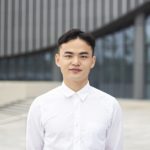 Name: Zhaochong Cai
Name: Zhaochong Cai
Starting date: 01-12-2020
Function: PhD
Group: CoR
Supervisor: David Abbink and Michaël Wiertlewski
My name is Zhaochong Cai. I am currently a PhD candidate in the Human-Robot Interaction section of Cognitive Robotics department, under the supervision of Dr. David Abbink and Dr. Michaël Wiertlewski. My PhD project mainly focuses on improving tracking performance on touchscreens using force feedback with haptic surfaces.
I received my Msc Degree from Zhejiang University, China in 2020. I enjoy outdoor activities especially hiking, marathon and rock climbing.
University of Groningen
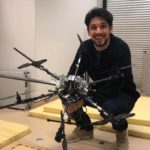 Name: Santiago Sanchez
Name: Santiago Sanchez
Starting date: 01-11-2020
Function: PhD
Group: Discrete Technology & Production Automation (DTPA)
Supervisor:
Hello everyone! My name is Santiago and I just joined the DTPA group at the University of Groningen as PhD Candidate for the Digital Twin project. In 2019 I graduated as a MSc in Systems and Control (Robotics and Mechatronics track) from the University of Twente. Previously, I did my undergraduate studies in Industrial Engineering, with a specialization in Mechanical Engineering, in the University of Castilla-La Mancha (Spain) and the University of Minnesota (USA).
My research at RUG will focus on the combination of Machine Learning and classical modeling and control techniques for the application in complex robotic systems. In the past I have worked as a research engineer in the fields of aerial robotics and autonomous cars.
In my free time I enjoy cooking, long walks, dancing salsa and practicing martial arts.
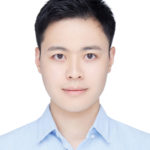 Name: Li Lidong
Name: Li Lidong
Function: PhD student
Email: l.li@rug.nl
Group: Smart Manufacturing Systems (SMS)
Supervisor: Prof. dr C. De Persis
Project: Data-driven control of power networks
Background: B.E in Electrical Engineering and Automation, Harbin Institute of Technology; M.E in Aeronautical and Astronautical Science and Technology, Harbin Institute of Technology.
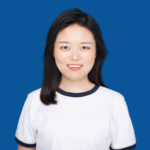 Name: Xiaoyan Dai
Name: Xiaoyan Dai
Function: PhD
Email: x.dai@rug.nl
Group: Smart Manufacturing Systems(SMS)
Supervisor: Prof. C. De Persis and Dr. N. Monshizadeh
Project: Data-guided learning in power systems: analysis and design
Hello everyone! I am Xiaoyan Dai from China, and I recently started my PhD under the guidance of Prof. C. De Persis and Dr. N. Monshizadeh at the University of Groningen. I received my BSc degree in Automation and my MSc degree in Systems & Control at North China Electric Power University. During my PhD, I will be working on the topics of data-guided learning of power systems. Outside work, I enjoy very much reading and biking, also music.
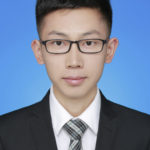 Name: Xiupeng Chen
Name: Xiupeng Chen
Function: PhD
Email: xiupeng.chen@rug.nl
Group: Discrete Technology & Production Automation (DTPA) and Smart Manufacturing Systems(SMS)
Supervisor: prof. dr. ir. J.M.A. Scherpen and dr. N. Monshizadeh Naini
Project: Market design in uncertain power networks
Xiupeng Chen received the B.S. degree and the M.S. degree in electrical engineering from North China Electric Power University, Beijing, China, in 2017 and 2020 respectively. He is currently pursuing a Ph.D. degree at the University of Groningen. His research interests include integrated energy system operation, electricity market, and power system economics.
Eindhoven University of Technology
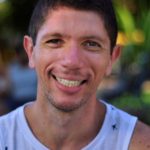 Name: Gustavo R. Gonçalves da Silva
Name: Gustavo R. Gonçalves da Silva
Starting date: 01-11-2020
Function: Postdoc
Email:g.rodrigues.goncalves.da.silva@tue.nl
Group: Control Systems
Supervisor: Prof. Dr. Mircea Lazar.
Project: LONGRUN: Development of efficient and environmentally friendly LONG distance poweRtrain for heavy dUty trucks aNd coaches
I am from Brazil and I hold a PhD in Electrical Engineering (area: Control Systems) since October 2019, and I have a BSc. formation in Control and Automation Engineering (Mechatronics). My main area of research is data-driven (DD) control for multivariable systems, and I have been working on controller tuning designs since the first design choice, i.e., the reference model, to the tuning algorithms themselves, including DD methods for non-minimum phase systems and for LQR design. Recently, I focused my work on a DD approach to the controller certification problem (whether inserting a new controller in the loop will result in a stable closed-loop) by estimating the infinity norm of a target transfer function.
As part of my Postdoc at TU/e, I will be working in an approach for DD Eco-driving Control for Improving Fuel Efficiency of Heavy Duty Trucks. Eco-driving is a strategy that aims to determine an optimal velocity profile and driving mode sequence (e.g., cruising, coasting, etc.) over a future finite road segment such that the fuel consumption is minimized, while a target velocity is still attained. The project is collaboration with DAF and I’m supervised by Prof. Dr. Mircea Lazar.
In my spare time I like to go hiking and uitwaaien. I also like to play the bass or the acoustic guitar, and go out for a few drinks. I’m not a sportsman, although I enjoy playing volleyball.
 Name: Duo Xu
Name: Duo Xu
Starting date: 01-11-2020
Function: PhD student
Email: d.xu@tue.nl
Group: Control Systems
Supervisor: Mircea Lazar
Project: Advanced digital control of ultra-high frequency power converters
Hello, I am Duo from China and I become a PhD student this November in the Control Systems (CS) group at the Eindhoven University of Technology. For my PhD project, it focuses on the design and implementation of advanced digital controllers for high precision power converters with ultra-high effective switching frequency. Also, the validation has to be carried out using a prototype that is targeting a semiconductor lithography application.
Before I come to Eindhoven, I received my BSc degree in Electrical Engineering from Nanjing University of Aeronautics and Astronautics in China. And I went to Sweden to study the MSc of Electric Power Engineering at Chalmers University of Technology. During my Master, I attended the Erasmus exchange program to Delft University of Technology for one semester, which leaves me a fantastic impression about the Netherlands. My Master thesis is conducted at the company Volvo Group, it aims to apply the finite control set model predictive controller to a non-linear PMSM model.
I enjoy sports, cooking and traveling for local cuisine.
 Name: Dipankar Mukherjee
Name: Dipankar Mukherjee
Starting date: 01-11-2020
Function: PhD
Email: d.mukherjee1@tue.nl
Group: Dynamics & Control
Supervisor: Prof.dr. H. Nijmeijer
Project: Madein4
Being a graduate in the field of Nanoscience and Nanotechnology, I specialize in the field of Nanoelectronics I am passionate about experimentation, which gives me a tangible sense of my work and mathematics with which I can look and understand the reality of the work and its application I was part of Erasmus Mundus joint master’s program and I studied in KU Leuven, Belgium and TU Dresden, Germany during this time period My
origins belongs to a medium city of Ujjain in India My city is famously known for possibly the most populous event on Earth called Kumbha Mela that takes place every 12 years (It is equivalent to the orbit period of Jupiter) At Dynamics and Control group of TU Eindhoven my work would focus on 3 dimensional subsurface Nano imaging using mechanical waves Some of my major challenges in this work would be quantification, mathematical modelling and sensitivity of the technique of SSURFM, that, I would be using for my experimentation My work would have direct application in Semiconductor and Biomedical industry.
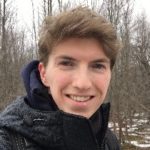 Name: Luuk Poort
Name: Luuk Poort
Starting date: 01-11-20
Function: PhD
Email: l.poort@tue.nl
Group: Dynamics & Control
Supervisor: Prof.dr.ir. N van de Wouw
Project: Model Reduction in a Modular Framework
Hi, my name is Luuk and I’m 24 years old. On November 1st, I’m starting my PhD at the group of Dynamics and Control at the TU/e, under the supervision of Nathan van de Wouw and Rob Fey and in collaboration with ASML. During my PhD, I will be working on the development of a modular approach for model reduction of structural dynamics, with a specific focus on the semi-conductor equipment of ASML. Interpretability of the results, by means of physically interpretable states and error estimates, is of particular importance for the design process of ASML. I completed both BSc and MSc degrees of Mechanical Engineering at the TU/e. My graduation project, under the supervision of Alessandro Saccon and Nathan van de Wouw, was about the applicability of impact models to predict the landing of tossed parcels, for the logistic industry. Besides my studies, I relax by playing tennis, dancing and, since Corona, also cycling.
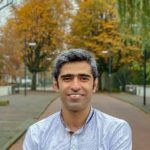 Name: Mohammad Abbasi
Name: Mohammad Abbasi
Starting date: 10-11-20
Function: Postdoc
Email: M.H.Abbasi@tue.nl
Group: Dynamics & Control
Supervisor: Prof.dr.ir. N. van de Wouw
Project: Digital Twin
Mohammad Hossein Abbasi was born on August 10, 1989, in Eilam, Iran. He received his B.Sc. and M.Sc. in Mechanical Engineering from Sharif University of Technology, Tehran, Iran, in 2011 and 2013, respectively. From October 2016 until November 2020, he was a Ph.D. student within Center for Analysis, Scientific Computing and Applications at the Department of Mathematics and Computer Science at Eindhoven University of Technology, under the supervision of Wil Schilders, Nathan van de Wouw and Laura Iapichino. During his Ph.D., he focused on different aspect of model order reduction techniques for hydraulics in managed pressure drilling. In our group, he will start to work with Nathan van de Wouw as a postdoc researcher in the Digital Twin project on November 10. He will focus on the cyber-physical digital twinning and will develop a digital twin demonstrator for the industrial collaborators.
Mohammad’s research interests include dynamics and control, model order reduction, data-based and dynamical modeling, and computational fluid dynamics.
 Name: Bram Seinhorst
Name: Bram Seinhorst
Function: PhD student
Email: B.seinhorst@utwente.nl
Group: Precision engineering
Supervisor: Wouter Hakvoort
Project: Metamech
Hello Everyone, my name is Bram Seinhorst. I recently started my PhD at the precision engineering group, within the mechanical engineering department at the university of Twente. I will be working on the modelling and control of meta-material with distributed actuation (metamech), with the goal of reducing parasitic natural frequencies in precision mechanisms. I received my BSc and MSc in mechanical engineering at the university of Twente. During my master thesis I have designed and implemented adaptive feedforward control for a six degree of freedom parallel manipulator.
Eindhoven University of Technology
Candidate: Amritam Das
Group: Control Systems
Thesis: A digital Twin for Controlling Thermo-Fluidic Processes
Promotor: prof.dr. Siep Weiland
Date: 2 november 2020
Location: TU/e Atlas 0.710
Time: 16.00 h.
Candidate: S. Naderilordjani
Group: Dynamics & Control
Thesis: Model reduction for infinite-dimensional systems: with application to managed pressure drilling
Promotor: Prof.dr.ir. N. van de Wouw
Date: November 20, 2020
Location: Auditorium, TU/e
Time: 13h30
Candidate: Paul Padilla Cazar
Group: Control Systems
Thesis: Nonlinear Optimal Control Methods for Eco-Driving and Complete Vehicle Energy Management.
Promotor: prof.dr. Siep Weiland
Date: 1 december 2020
Location: TU/e Atlas 0.710
Time: 13.30 h.
University of Groningen
Candidate: Henk van Waarde
Group: Smart Manufacturing Systems (SMS)
Thesis: From data and structure to models and controllers
Promotor: prof. dr. M.K. (Kanat) Camlibel & dr. P. Tesi
Date: 20-11-2020
Time: 12. 45
Candidate: Jiajia Jia
Group: BI
Thesis: Analysis of structural properties of complex and networked systems
Promotor: prof. dr. H.L. (Harry L.) Trentelman & prof. dr. M.K. (Kanat) Camlibel
Date: 09-11-2020
Time:12.45
University of Twente
Candidate: G.V. Durandau
Group: Biomechanical Engineering
Thesis: Real-time Neuromusculoskeletal modelling for wearable robotic systems
Promotor: H. van der Kooij, co-promotor: M. Sartori
Date: 6 November 2020
Time: 10:45
The next issue of this Newsletter will appear in January 2021.
We encourage the contributors to provide newsworthy information. In principle, we intend to publish any message offered. However, we reserve the right to edit certain parts of a submission.
Please send your contributions to: m.w.otte@tudelft.nl
You receive this newsletter because you are a member of DISC. If you want to be removed from the mailing list, please let us know by sending an email to m.w.otte@tudelft.nl